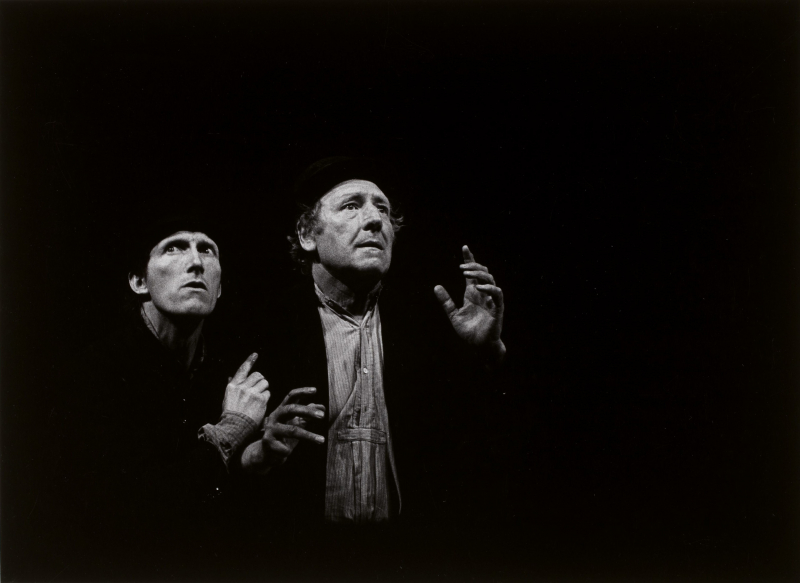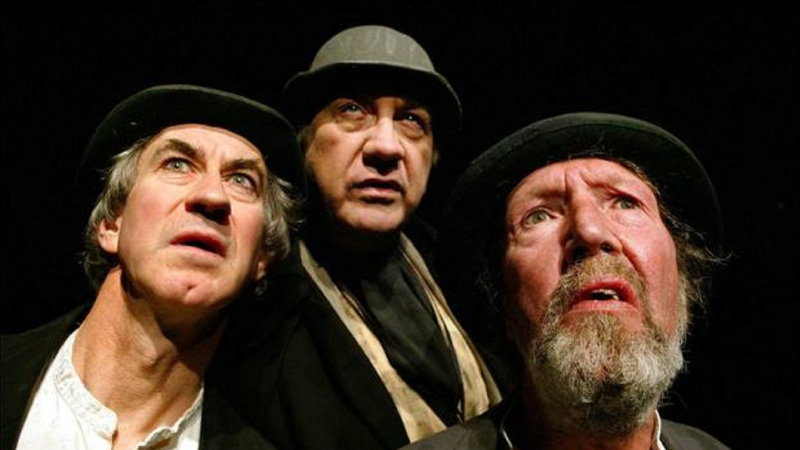Waiting for Godot by Samuel Beckett

In Samuel Beckett's play Waiting for Godot, two characters named Vladimir (Didi) and Estragon (Gogo) interact with one another while they wait for the play's titular Godot, who never shows up. When this play first appeared in 1948, a new era in playwriting began. In this play about two tramps waiting for someone named, obviously, Godot on a rather desolate plain, Beckett avoided the usual storyline. When he doesn't appear in the first act, they repeat it in the second with some changes. Are they anticipating some type of twisted God? Is Beckett's play only a representation of the banal truths of everyday life? Both? Whatever the case, Godot brilliantly placed abstraction center stage and continues to do so.
Beckett's translation of his own original play in French, En attendant Godot, is named Waiting for Godot and is described as "a tragicomedy in two acts" (in English only). Between 9 October 1948 and 29 January 1949, the original French text was written. The premiere was held on January 5, 1953, at the Théâtre de Babylone in Paris under the direction of Roger Blin. In 1955, the English-language version made its debut in London. It was chosen as the "most significant English-language play of the 20th century" in a survey held by the British Royal National Theatre in 1998–1999.
Written by: Samuel Beckett
Created: 1953
















